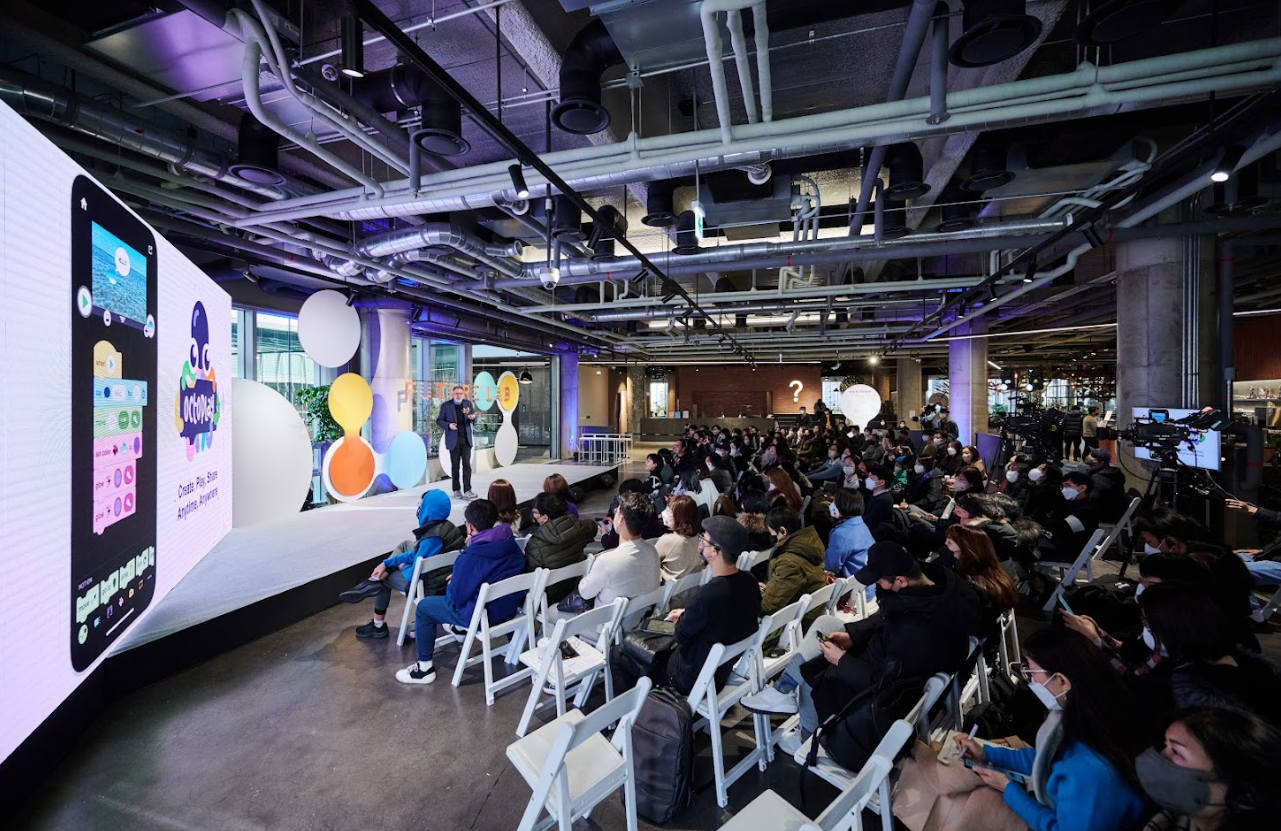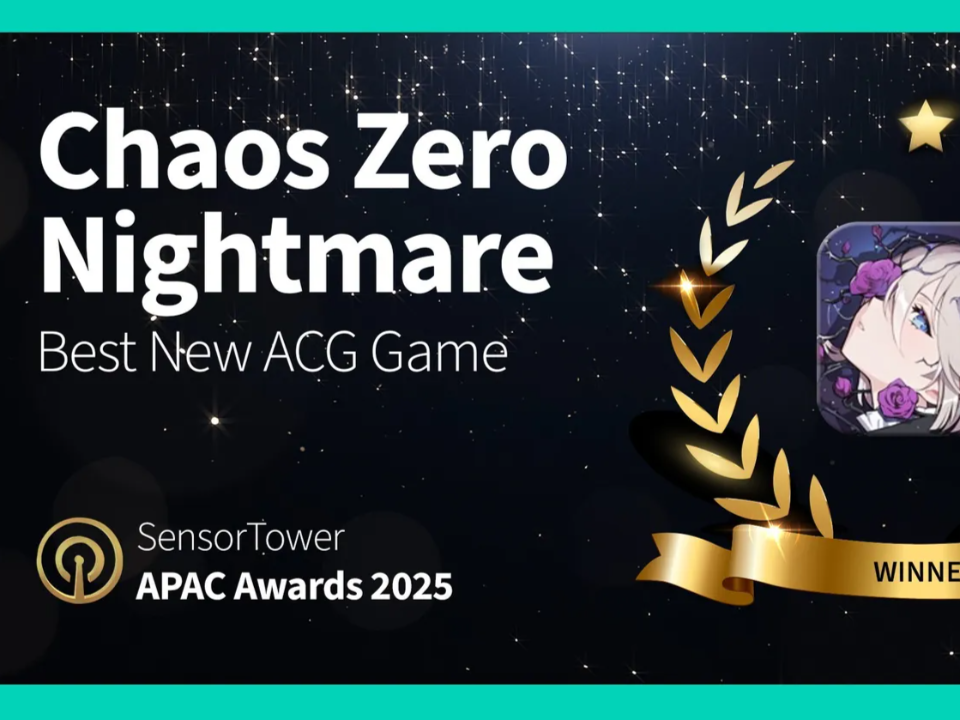■ Over 350 participants including educators, parents, and young people participated in ‘Connecting Dots: The Expanding World of Creativity’ held on December 17 (Sat)
■ Professor Mitchel Resnick of MIT Media Lab emphasizes, “We need a global movement to build a creative environment for children and young people”
■ A place to share research, expertise, and philosophies developed over the past seven years while forming connections in the process

Professor Mitchel Resnick of MIT Media Lab gives a keynote presentation at the Smilegate Future Lab Conference ‘Connecting Dots: The Expanding World of Creativity’ held on December 17 (Sat).
The ‘Connecting Dots: The Expanding World of Creativity’ conference held by Smilegate Future Lab at Smilegate Campus in Bundang-gu, Gyeonnggi-do came to a successful conclusion on December 17 (Sat).
The event was attended by over 350 educators, parents, young people and other participants interested in creative environments from an educational perspective. The conference garnered attention for promoting the need to build a culture of creative learning within Korean society in order to enhance creativity across society. The ‘Connecting Dots: The Expanding World of Creativity’ conference was held to help build a creative environment where future generations can unleash their own unique creativity, while also sharing results from various studies conducted by Smilegate Future Lab on over 20,000 children, young people, and educators over the past seven years.
The first session of the conference featured the keynote presentation ‘Into the World of Creative Environments and Diversity,’ followed by a talk on the topic ‘Where does the gap in education come from in the super gap era?’ in the second session. Finally, the third session featured a discussion between educators, artists and scientists who have collaborated with Smilegate Future Lab over the years on the topic ‘Supporting uniqueness in children for artistic reasons.’
Professor Mitchel Resnick of MIT Media Lab gave a keynote presentation on the topic ‘A Culture of Creative Learning and Acceptance’ and emphasized, “We must develop problem-solving skills in order to facilitate creative learning. In this process, it is important for people to think about what they can contribute to their local communities and develop acceptance to embrace other people and society as whole.” He also stressed the importance of international cooperation in building a culture of creative learning by stating, “To build a better world for future generations, we must support our children in expressing their creative ideas. In particular, we should get our children involved in the work of building a culture of kindness, understanding, and tolerance.”
Vice President Gil-young Song of VAIV Company spoke on the topic ‘I HOPE THE RAPIDLY CHANGING SURVIVAL TECHNOLOGY OF FUTURE SOCIETY BECOMES “REAL”.’ Mr. Song stated, “In the rapidly changing society of today, maintaining an interest in what you desire and sharing this with others is becoming more valuable” and added, “Everyone is creative. If we express ourselves in our own way and communicate with others, whether that is through language, coding, or gestures, we will discover our creativity and master it as we obtain the strength to survive in the society of the future.”
In the second session, MIT Media Lab Researcher Natalie Rusk, Jeju Donam Elementary School teacher Tae-hoon Kim and others discussed changes in education that could be applied in schools and other education institutes based on the opinions of those working in the field. Seong-min Lee, a student at Sungkyunkwan University who has spent his adolescence at Smilegate Future Lab, stated, “With support from many adults and friends and a culture of warmth, I have had a range of experiences that I would not have even attempted by myself. By being exposed to such a variety of experiences through the Future Lab, I have been able to broaden my horizons.”
Another educator who attended the conference stated, “It was a meaningful event where we saw that we can bring about change in education as different entities influence each other over the course of working together on experimental projects at Future Lab” and added, “I hope that Future Lab continues to maintain its philosophy and keeps conducting progressive experiments.”
In the third and final session of the conference, installation artist ‘guBuyo Band’, sound artist In-sook Bae, game planner Gomushin and others participated in a discussion to explore ways to help children discover and maintain their own interests.
An enthusiastic Q&A session between participants continued even after the conference officially ended. The event enabled educators to form connections in the process of applying the results of education studies conducted by Future Lab over the past seven years, and this is meaningful in the sense that the conference suggested a future direction for education in Korea.
Chairman of the Board Hyuk-bin Kwon of Smilegate Future Lab gave a welcoming address at the event, explaining the meaning of the Future Lab conference as an event to explore methods to achieve the company’s vision in partnership with a range of guests and attendees. Mr. Kwon stated, “We are about to enter an era where diversity is respected. In this era, I think our children will be able to enjoy true freedom and happiness when they are able to find something to call their own and unleash their own unique creativity. In today’s conference, we are happy to share Future Lab’s research findings and philosophies, as well as other necessary matters in the field of education.”.
.








 TOP
TOP
